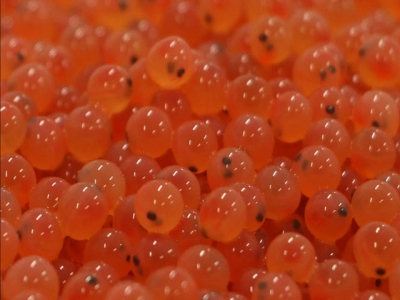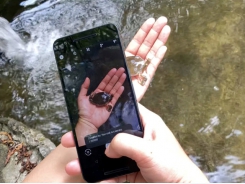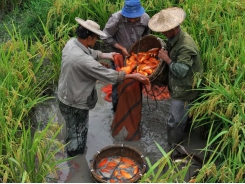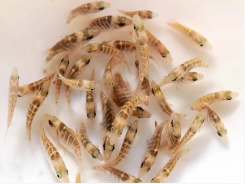Genetic breakthrough could save farmed salmon from flavobacteriosis

Two new genetic markers that indicate greater resistance to a bacterial infection in farmed Atlantic salmon have been identified by a team of aquaculture researchers.
Field trials will now be conducted at one of Cooke Aquaculture’s sites, using salmon eggs specifically selected by AquaGen
The consortium has been exploring the genetics that determine whether fish are resistant to Flavobacterium psychrophilum – a bacterium which can lead to health issues in salmon fry.
The discovery is expected to pave the way for selective breeding programmes, which could boost the health and welfare of farmed Scottish salmon by breeding new fish from parents that possess the genetic resistance markers and are, therefore, expected to display increased resistance to the bacteria.
vaccination by injection cannot be used due to the size of the fish and, as the sector continues to move away from antibiotic treatments, a genetic breakthrough could hold the key
Flavobacteriosis can be a particular threat to smaller, juvenile fish and is a widespread challenge for the aquaculture sector, with infections also reported in Chile, Norway and Canada. However, current prevention and treatment programmes are limited – vaccination by injection cannot be used due to the size of the fish and, as the sector continues to move away from antibiotic treatments, a genetic breakthrough could hold the key.
The project is backed by the Sustainable Aquaculture Innovation Centre (SAIC) and led by AquaGen Scotland, with partners from the University of Stirling’s Institute of Aquaculture, DawnFresh Farming and Cooke Aquaculture Scotland.
Andrew Reeve, managing director of AquaGen, said: “Continual improvements in fish health and welfare are priorities for the aquaculture industry, to which robust stock suited to the farmed environment make an important contribution. Genetic markers for disease resistance, such as those discovered through this SAIC-funded project, are valuable tools that can and will be immediately employed in breeding work.”
To identify the two genetic markers, more than 4,000 fish from AquaGen were tested for more than 70,000 genetic markers using a specially designed lab-based model, which mimics the natural infection route. The next stage of the research programme is to conduct field trials at one of Cooke Aquaculture’s sites, using salmon eggs specifically selected by AquaGen. It is hoped that, in the event of a natural outbreak of the bacterial disease being detected, these fish can be tested to validate the effect of the genetic markers.
Heather Jones, CEO of SAIC, said: “The interim results of this R&D project are highly encouraging and point towards a new, sustainable approach to tackling a common health issue reported in young salmon. One of the most valuable outputs of collaborative innovation projects is the wealth of knowledge that can be shared across the entire sector and findings like this have the power to make a big difference to fish health and welfare.”
Dr Rowena Hoare, research fellow at the Institute of Aquaculture, added: “Flavobacteriosis is known to be problematic for salmonid culture in freshwater globally for decades. This project has shown how fruitful it can be to combine the expertise of academic and industry researchers to address a complex and economically important disease.”
Related news
Tools

Phối trộn thức ăn chăn nuôi

Pha dung dịch thủy canh

Định mức cho tôm ăn

Phối trộn phân bón NPK

Xác định tỷ lệ tôm sống

Chuyển đổi đơn vị phân bón

Xác định công suất sục khí

Chuyển đổi đơn vị tôm

Tính diện tích nhà kính

Tính thể tích ao




 Study suggests farmed salmon spread PRV to wild…
Study suggests farmed salmon spread PRV to wild…  Indian scientists report red snapper breeding breakthrough
Indian scientists report red snapper breeding breakthrough